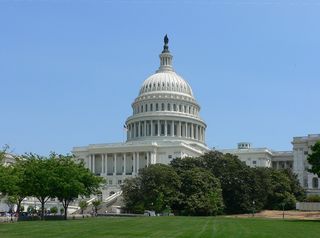

American politics has been plagued by an unusual amount of conflict and animosity in recent years, even before the contentious election of 2016. People from both ends of the political spectrum accuse one another of clinging to partisan ideals and criticize one another for refusing to cooperate and compromise in the nation’s best interests. Both sides portray their opponents as dogmatic and entrenched in their views, but are both sides equally to blame?
To examine this question, we conducted a study that measured Americans' attitudes about nine controversial issues on which liberals and conservatives in the United States tend to disagree: health care, immigration, abortion, the government’s role in helping people in need, voter identification laws, income taxes, the use of torture to extract information from terrorists, affirmative action, and the degree to which laws should be based on religious beliefs. After giving their personal attitude on each issue, respondents rated the degree to which they thought that their personal political belief on that issue was superior to other viewpoints.
Of course, virtually everyone thought that their own personal attitudes were better than other people’s views. Our question, though, was whether liberals or conservatives were more likely to believe that their personal views were superior. Did people who endorsed conservative versus liberal attitudes tend to have a stronger conviction that they are right?
The results clearly showed that neither liberal nor conservative attitudes were consistently associated with a stronger belief that one’s own political views are superior to other beliefs. Looking across all nine issues, people holding liberal and conservative attitudes were equally convinced that they were right.
However, two intriguing patterns emerged. Although people holding liberal versus conservative beliefs did not differ overall in their sense of belief superiority, people who held more extreme beliefs in either a liberal or conservative direction thought that their views on the issues were more correct than people who held moderate views. The more extreme people’s attitudes were in either direction, the more certain they were that they were correct. Although people with moderate views certainly thought they were right, they were more likely to concede that other beliefs might have some merit.
In addition, an issue-by-issue analysis showed that people with conservative attitudes were more convinced that their personal belief was “the only correct view” on three of the nine issues, and people with liberal attitudes were more certain than conservatives on three issues.
Those who were absolutely confident in their attitudes about voter identification, taxes, and affirmative action, endorsed more conservative attitudes than those who were less certain—they supported stricter voter ID laws, lower taxes, and less affirmative action. But for attitudes about government aid for the needy, torture, and not basing laws on religion, participants who were absolutely certain that they were correct had more liberal views. On the remaining three issues, liberals and conservatives were equally likely to think that their views were totally correct. In other words, people with liberal and conservative views were equally likely to display a sense of belief superiority, but on different issues.
I see two major take-home messages from these results. First, neither liberals nor conservatives have a monopoly on being entrenched in their views. Liberals and conservatives differ in the issues they’re most convinced about but, overall, it’s a wash. Believing that one’s beliefs are superior is bipartisan.
However, people who hold extreme beliefs, in either a liberal or conservative direction, tend to be more convinced that they are correct than people with moderate beliefs. This pattern seems a bit illogical. Given the complexity of the world, one might expect one-sided beliefs to be less correct on average than nuanced, qualified, balanced, moderate views. Few issues are black-and-white, so consistently thinking that either black or white is always the right answer seems less reasonable overall than acknowledging that many issues come in shades of gray.
Yet the Pew Research Center found that American voters have become increasingly polarized in the past 20 years. Political attitudes have moved toward the extremes so that there were fewer moderates in 2014 than in 1994 (20% fewer, to be precise). At the same time, the proportion of people with the most extreme liberal and conservative views just about doubled over that 20-year span.
Mapping our findings on to the Pew data, I assume that people’s certainty that they are correct has increased over the past couple of decades as well because more extreme views are associated with greater certainty. And, of course, these less moderate voters are electing politicians with less moderate positions, who are also more inclined to believe that their views are absolutely right.
We all have our personal political views, and we naturally assume that our own views are correct. But we all can’t be right, so most of us must be more certain about our beliefs than we should be.
To all voters and elected officials, I have a question: In all of the instances in which you disagree with people on the other side of the political spectrum, is it really plausible that your position is always the correct one? And, if so, how did you become endowed with such knowledge, judgment, and wisdom that your views on the issues are always right? We all have our opinions, and we all think those opinions are right. But, having some intellectual humility about our views will go a long way toward fostering cooperation and compromise that will ultimately benefit all of us.
References
Toner, K., Leary, M. R., Asher, M. W., & Jongman-Sereno, K. P. (2013). Feeling superior is a bipartisan issue: Extremity (not direction) of political views predict belief superiority. Psychological Science, 24, 2454-2462.



